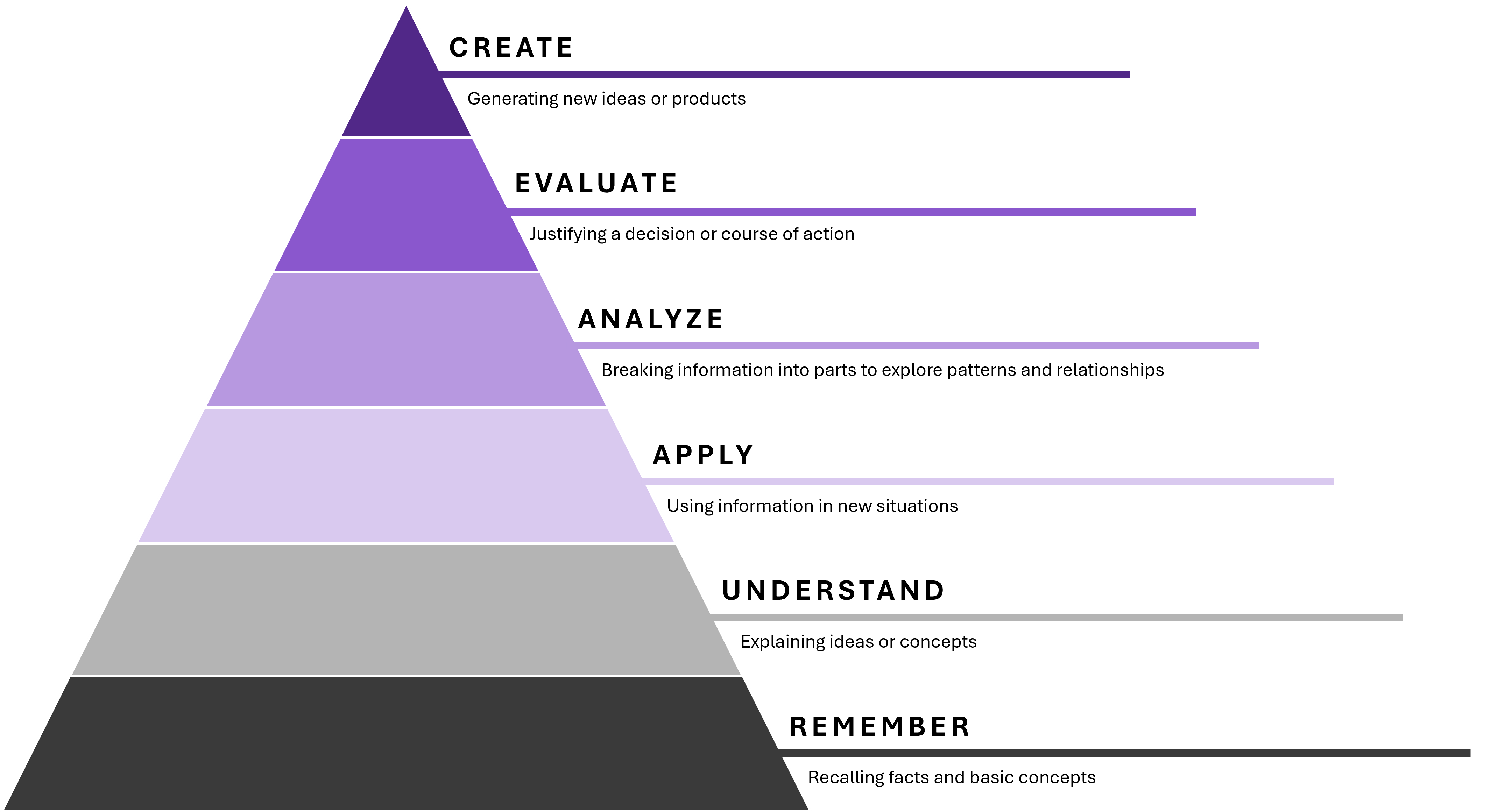Bloom's Taxonomy - Overview of Cognitive Skills
Bloom’s Taxonomy is a well-established framework that categorizes levels of thinking and learning. Originally developed by Benjamin Bloom and later revised by Anderson and Krathwohl, this model organizes cognitive skills into six tiers, from simple recall of facts to the creation of new ideas. The taxonomy serves as a practical tool for designing clear, measurable learning outcomes and for aligning assessments with the complexity of student learning.
|
Level
|
Definition
|
Example
|
|
Remember
|
Recall facts and basic concepts
|
Recall the dates of major historical events.
|
|
Understand
|
Explain ideas or concepts
|
Summarize a scientific article.
|
|
Apply
|
Use information in new situations
|
Use Newton's laws to solve real-world problems.
|
|
Analyze
|
Break down information into parts
|
Identify causes and effects in a historical case.
|
|
Evaluate
|
Justify a decision or stand
|
Critique the methodology of a research study.
|
|
Create
|
Produce new or original work
|
Design a solution for community health issue.
|
Develop clear and measurable student learning outcomes using our Action Verb List.
Bloom's Taxonomy Pyramid
Bloom's Taxonomy pyramid is a tiered model of cognitive skills that progresses from basic recall to complex creation. It organizes learning into six levels: Remember, Understand, Apply, Analyze, Evaluate, and Create.
